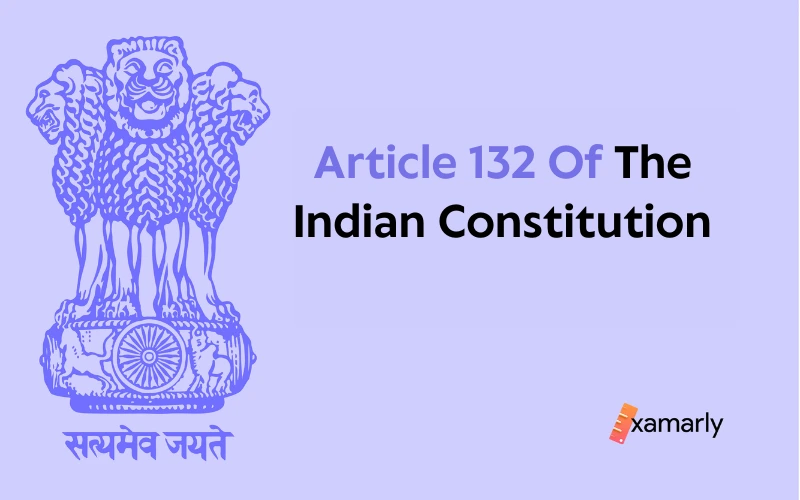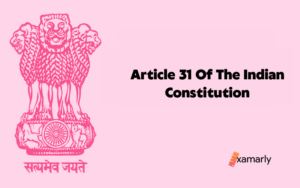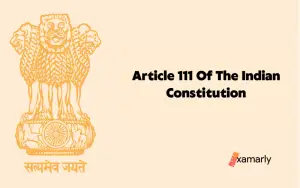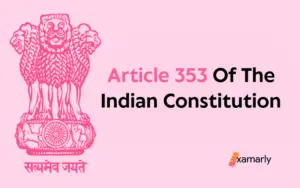Regarding certain appeals from High Courts, the Supreme Court has appellate jurisdiction under Article 132 of the Indian Constitution.
One of the most significant powers that the courts in the nation wield is appellate jurisdiction. When a lower court’s ruling leaves a party dissatisfied, this jurisdiction ensures that they have the option to appeal to the Supreme Court.
In an appeal, the higher court is tasked with reviewing and amending the decision made by the lower courts. Additionally, it eliminates any erroneous legal interpretations or factual distortions in the lower court’s procedures.
Reading this will help you better understand Article 132 and is required reading for the preparation of the Indian Polity section of the UPSC CSE Syllabus.
- Article 132 Of The Indian Constitution
- Conditions For Supreme Court Appeal
- Conclusion
- FAQs
- Which Of The Following Articles Discusses The Appellate Jurisdiction Of The Supreme Court In Certain Cases Involving An Appeal From The High Court?
- What Is Article 134A All About?
- Which Amendment Of The Indian Constitution Has Amended Article 132?
- What Kinds Of Appellate Jurisdiction Are There?
- Which Part Of Indian Constitution Speaks About Article 132?
- What Is Decree?
- What Is Appellate Jurisdiction?
Article 132 Of The Indian Constitution
The provisions of Article 132 are detailed below in two clauses:
Clause 1: If the High Court certifies under article 134A that the matter contains a significant issue of law pertaining to how this Constitution should be interpreted, then there is a right of appeal to the Supreme Court from any judgment, decree, or final order of a High Court rendered in the Indian subcontinent, whether in a civil, criminal, or other proceedings.
Clause 3: In the event that such a certificate is issued, any party to the case may file an appeal with the Supreme Court on the grounds that any such question as stated above was incorrectly decided.
Explanation — A decision that, if made in favor of the appellant, would be sufficient for the case’s final disposition is included in the definition of “final order” for the purposes of this article.
Note:
Clause 2 of Article 132 has been removed as a result of the 44th amendment of the Constitution. In addition to the deletion of the aforementioned clause, there have been other changes made to Article 132, which you can read about by clicking on the linked article.
Conditions For Supreme Court Appeal
The prerequisites for appealing to the Supreme Court are as follows:
- When the High Court issues a ruling, decree, or order.
- When the case’s problems involve a substantial question of law.
- The Supreme Court is the only court that can hear a case when the High Court decides that it is appropriate for them to do so.
Conclusion
A legal organization, like a court, is given the authority to administer justice within a specific area of responsibility. The Indian Constitution’s Articles 131–136, as well as Article 143, stipulate that the Supreme Court possesses three different kinds of jurisdictions: original, appellate, and advisory.
The Supreme Court has appellate jurisdiction over some cases from High Courts in accordance with Article 132.
For Further Readings:
FAQs
Which Of The Following Articles Discusses The Appellate Jurisdiction Of The Supreme Court In Certain Cases Involving An Appeal From The High Court?
In specific situations requiring an appeal from the High Court, Article 132 discusses the Supreme Court’s appellate jurisdiction.
What Is Article 134A All About?
The certificate for appeal to the Supreme Court is covered by Article 134A.
Which Amendment Of The Indian Constitution Has Amended Article 132?
The Forty-Fourth amendment has resulted in the deletion of Clause 2 of Article 132. The omission of the aforementioned clause is one of the few modifications made to Article 132.
What Kinds Of Appellate Jurisdiction Are There?
The Supreme Court primarily functions as an appeals court, reviewing appeals from decisions of lower courts. It possesses a comprehensive appellate jurisdiction that may be broken down into four distinct divisions:
1. Appeals on constitutional matters
2. Appeals in civil matters
3. Appeals in criminal matters
4. Appeals by special leave
Which Part Of Indian Constitution Speaks About Article 132?
Article 132 is enshrined in Part V of the Constitution of India.
What Is Decree?
It is described in CPC, 1908, Section 2(2). It is a formal declaration of adjudication that, in the opinion of the Court, outlines the rights of the party in question with regard to all or any of the issues in the case. It may be preliminary, final, or partially final preliminary.
What Is Appellate Jurisdiction?
Appellate jurisdiction refers to the ability of the higher court to change the outcome of lower court rulings or to review the decision. The highest court of justice in India is the Supreme Court. It has the authority to consider appeals in both civil and criminal cases.






